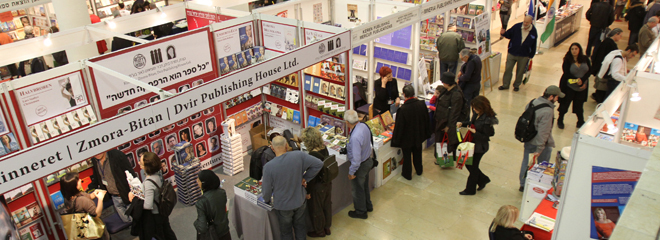
Photo Credit:
Jerusalem International Book Festival
Although Hebrew virtually ceased to be spoken around 200 CE, it continued to be used by Jews throughout the ages as the ‘sacred tongue’ in liturgy, philosophy and literature. In the late 19th century, it emerged as a modern cultural medium, becoming a vital factor in the national revival movement which culminated in political Zionism.
Today, Israeli press and literature is flourishing with the new generations of authors and readers, and Hebrew is a rich, vibrant, living tongue. In addition to the prolific body of Hebrew literature, a significant amount of writing, both prose and poetry appears in other languages, including Arabic, English, and French. Since the immigration of over one million Jews from the former Soviet Union, Israel has become the largest center of literary creativity in the Russian language outside Russia itself.